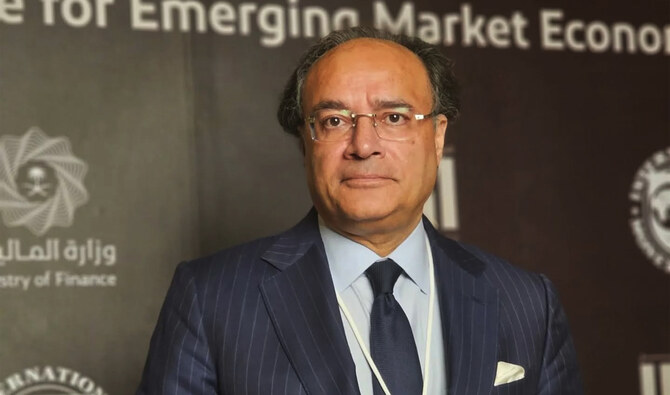
Pakistan’s Economy is on the Right Track – Muhammad Aurangzeb
The Country Entered 2025 with Overall Economic Stability and Improvement in Key Economic Indicators
The use of AI in the agriculture sector can potentially increase crop yields by 15% to 20%.
Muhammad Aurangzeb holds discussion on economic cooperation on the sidelines of the Emerging Markets Conference
RIYADH ( WEB NEWS )
Finance Minister Senator Muhammad Aurangzeb participated in a group discussion with the Finance, Economic, and Development Ministers of the UAE, Egypt, Jordan, Morocco, and other countries of Gulf Cooperation Council in AlUla city of Saudi Arabia.
The group discussion was held on the sidelines of the Emerging Markets Conference.
The discussion focused on regional economic cooperation, financial policies and development strategies, with participating countries exchanging views on shared economic goals and sustainable growth opportunities.
Federal Minister for Finance and Revenue, Senator Muhammad Aurangzeb, has stated that Pakistan’s economy is on the right track. The country entered 2025 with overall economic stability and improvements in key economic indicators. Structural reforms are being implemented, and Pakistan is the third-largest country in terms of freelancers. Our efforts are focused on providing freelancers with digital infrastructure and all necessary resources.
He made these remarks on Monday at a panel discussion held during the International Conference on Emerging Economies in AlUla, Saudi Arabia. The Managing Director of the International Monetary Fund (IMF), Kristalina Georgieva, moderated the discussion.
In the past, Pakistan faced current account deficits and significant trade imbalances. However, due to the government’s prudent financial management, a primary surplus has been achieved. The government has taken steps to broaden the tax base and increase the tax-to-GDP ratio, which reached 10.8% by the end of December. One of our targets is to increase this ratio to 14%.
The Finance Minister stated that the government has also initiated measures to control expenditures, making tough policy decisions in this regard. Reforms in the tax system and the energy sector, along with better governance and privatization of state-owned enterprises, are also being pursued.
He highlighted that remittances and exports have increased, and the government is committed to export-driven sustainable economic growth. The aim is to change the fundamental DNA of the economy. Due to government efforts, the debt-to-GDP ratio has decreased from 73% to around 67%.
The Finance Minister emphasized that it is encouraging to see Pakistan entering 2025 with overall economic stability and improvements in key economic indicators. Structural reforms are being implemented, and the economy is moving in the right direction.
He also underscored the crucial role of individuals in the digital transformation process. The focus should be on advancing technologies that create employment opportunities rather than taking jobs away. Artificial intelligence has accelerated digital transformation, and services must now be delivered in a better, faster, and more cost-effective manner. The use of AI in the agriculture sector can potentially increase crop yields by 15% to 20%.
The Finance Minister further stated that Pakistan’s IT exports have grown by 25% due to the adoption of artificial intelligence and technology, with vast potential in this sector. Pakistan is the third-largest country in terms of freelancers, and the government is striving to provide them with the necessary digital infrastructure and resources.
On this occasion, the IMF Managing Director acknowledged and endorsed Pakistan’s and the Finance Minister’s efforts toward economic stability and reforms.

